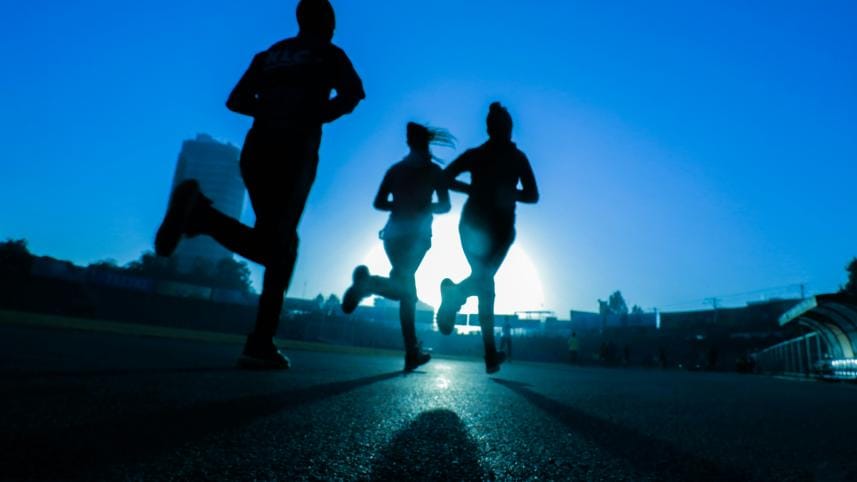The ideal workout schedule during Ramadan by fitness coach Nazia Hassan

Ramadan may present a unique set of challenges for those trying to maintain or start a fitness routine. With fasting from dawn until sunset, the absence of food and water intake during daylight hours can make it difficult to decide the best time to exercise. Nazia Hassan, a celebrated fitness coach and nutrition expert, offers her invaluable insights into navigating these challenges — ensuring that our spiritual journey and fitness goals align harmoniously.
The alteration in daily routines during Ramadan affects our body's energy levels and hydration status, making the choice of workout time vital for effective exercise without compromising our fast. Hassan outlines three optimal times to consider for integrating workouts into your Ramadan schedule, each with its benefits and considerations.
She suggests the first option is to exercise one or two hours before iftar. "This way, we don't have to wait a very long time to break our fast," Hassan explains. However, the fitness coach also cautions about potential downsides, including feeling thirsty during workouts and the inability to exert maximum energy due to fasting. Despite these challenges, this timing allows for a direct transition from exercise to nourishment, aligning well with the day's fasting cycle.
The second window opens two to three hours after iftar, offering a prime opportunity for more vigorous exercise. Hassan recommends a light but protein-rich iftar, including yoghurt, eggs, and electrolyte drinks, to prepare our body.

"You should wait for two to three hours before you do your workout," she advises. This timing ensures that our stomach isn't empty, enabling us to push ourselves further with the energy derived from our iftar meal.
For night owls, Hassan proposes a third option: working out two hours before sehri. This timing is particularly beneficial for those who stay awake late or sleep after sehri, as it allows for ample hydration before the day's fast begins.
"The timing is excellent because you can drink plenty of water during that and after finishing your workout, you can give your body the nutrition it needs with sehri," Hassan explains. This approach ensures our body is well-hydrated and nourished, supporting recovery and energy for the following day.
Hassan emphasises the importance of personalisation in finding the most suitable workout time during Ramadan. "We all have different goals and there might be lots of trials and errors; nevertheless, find the routine that works for you and stick to that," she encourages. Experimentation and adaptation are essential to discovering a fitness routine that aligns with our body's needs and spiritual commitments.

Moreover, hydration plays a fundamental role in our Ramadan fitness journey. "From the time of breaking your fast to fasting again, remember to drink plenty of water and anything to keep yourself hydrated," Hassan recommends. Maintaining hydration levels between iftar and sehri is vital for sustaining our exercise regimen and overall health during the fasting month.
That said, determining the best time to work out during Ramadan requires understanding our body's needs and adjusting our fitness goals accordingly. Whether before sehri or after iftar, the optimal time varies for each individual. By listening to our body and embracing the holistic spirit of Ramadan, we can maintain a balanced and fulfilling fitness routine that complements both our physical and spiritual well-being.



 For all latest news, follow The Daily Star's Google News channel.
For all latest news, follow The Daily Star's Google News channel.
Comments